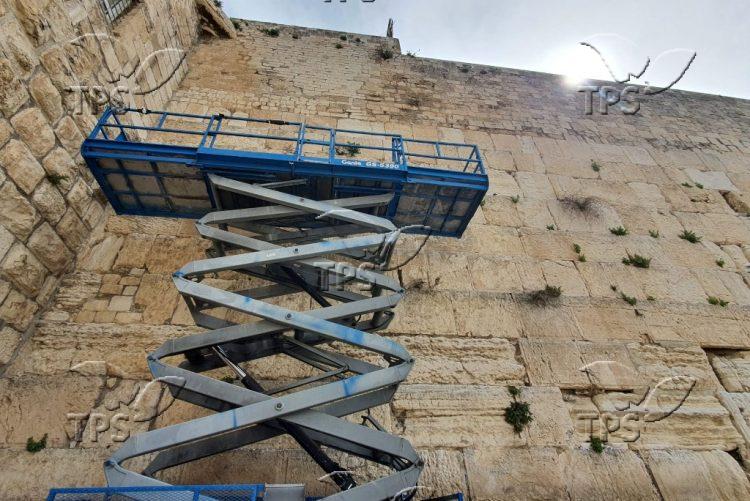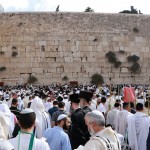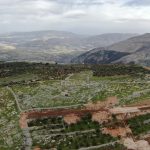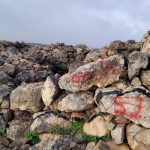Behind the Scenes: Jerusalem’s Western Wall Prepared for Passover Visitors
Jerusalem, 28 March, 2023 (TPS) -- While Jews around the world are preparing for the upcoming Passover holiday, engineers at the Western Wall spent Tuesday morning getting the holy site ready for the annual surge of holiday visitors.
The engineers, working for the Western Wall Heritage Foundation, which administers the site’s daily affairs, examined the integrity of the stones of the Western Wall, removing loose stones and seasonal plants.
The inspection is done twice a year, ahead of the Passover and Rosh Hashanah holidays for the safety of visitors and to maintain the wall’s structural integrity. The work is done under the supervision of the Rabbi of the Western Wall and the Holy Places Rabbi Shmuel Rabinowitz in accordance with religious law.
In July 2018, a boulder weighing 100 kilograms became dislodged from the wall and fell, just missing a 79-year-old woman praying there.
One of the holiday highlights is when thousands of Jews visit the Western Wall during the Priestly Blessing. Hundreds of kohanim, descendants of Aaron the Priest, give a traditional blessing. For those unable to attend, the event will be livestreamed on the Foundation’s website.
Also ahead of the Passover and Rosh Hashanah holidays, workers clean the Western Wall’s stones and remove the thousands of notes written to God which visitors place between the stones. The practice stems from Jewish teachings that God’s presence never left the Western Wall and that prayers ascend to heaven through the adjoining Temple Mount.
People unable to visit also write notes on the Foundation’s website which are placed in the wall by staff.
Notes removed by workers are buried.
The Western Wall, also known as the Wailing Wall, is the only remnant of a retaining wall encircling the Temple Mount built by Herod the Great and is the holiest site where Jews can freely pray. The Temple Mount, where the First and Second Temples were built, is the overall holiest site in Judaism.
For centuries, Jews did not visit the hilltop esplanade because of a rabbinic consensus that the laws of ritual purity still apply to the Temple Mount. But in recent years, a growing number of rabbis have argued that ritual purity laws don’t apply to all sections of the Temple Mount and encourage visits to permitted areas to maintain Jewish connections to the Mount.
In September, the number of Jews visiting the Temple Mount crossed the 50,000 threshold for the first time in modern history, according to Beyadenu, an organization working to advance Jewish ties to the holy site.
The week-long holiday of Passover begins on April 5.







